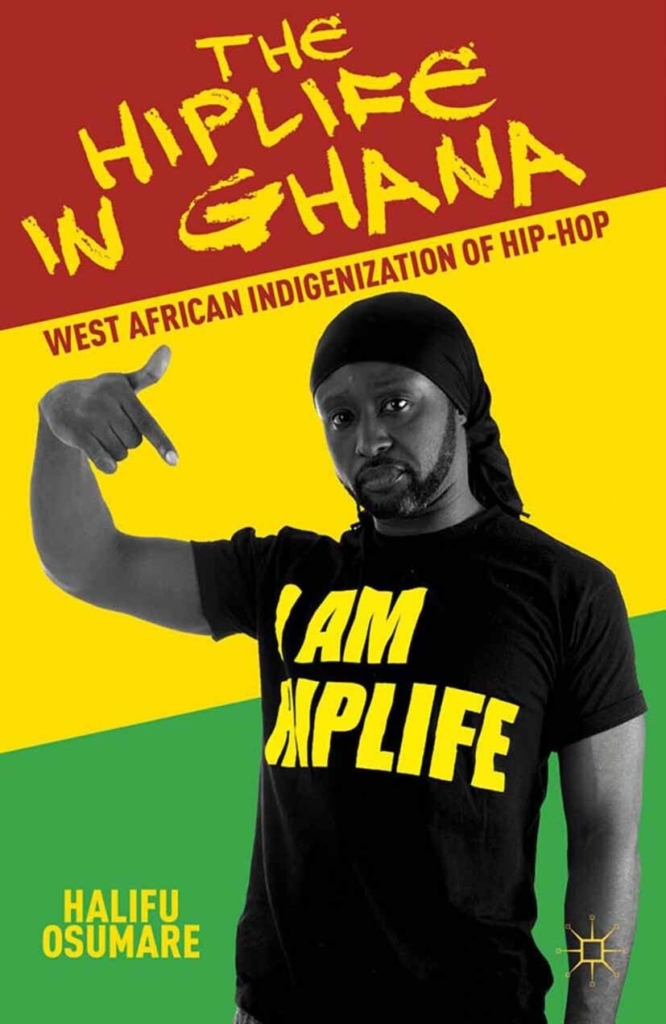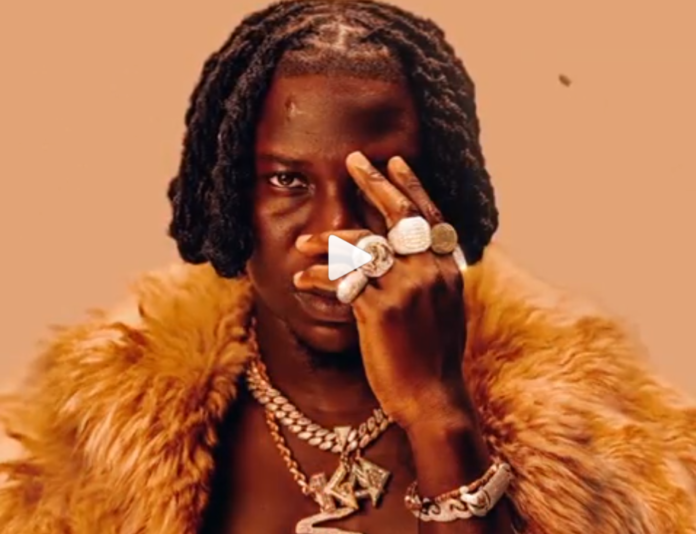Initially, I jettisoned the idea of writing about Stonebwoy’s recent rants about an article on hiplife published on grammy.com.
I thought writing an opinion piece was much ado about nothing and that just a post on social media would suffice for a commentary. But I have had a change of mind. Let me activate the voice in my pen and attempt to bring some clarity to the matter.
What goaded me to put this write-up together is Stonebwoy’s interview with MC Portfolio. I cringed while I watched Stonebwoy try to defend his tweet in which he expressed his dissatisfaction about the article not mentioning him.
He had earlier posted on X: “Who ever wrote this article is interestingly missing THE NAME @stonebwoy. @RecordingAcad Do Due Diligence before you publish half dozed articles aiming to capture the true image of the State of the Ghanaian Sound.”
I admit that the article titled ’10 Artists essential to Ghanaian Hiplife: Reggie Rockstone, Sarkodie, Mzbel & more’ written by Nana Kojo Mula is not perfect; there are a few factual inaccuracies. One that a lot of people pointed out was writing that Shatta Wale and Samini emerged in the early 90s. Later, he corrected it to the “late 2000s.”
Another mistake that has raised hackles is the description of Shatta Wale and Samini as “pioneering hiplife artists”. The hiplife movement started in 1993 and got fully established in 1996 when Reggie Rockstone mentioned it in his song ‘Tsooboi’. Shatta Wale (then Bandana) and Samini (then Batman) were not in the equation at that time.
It also beats my mind how Beeztrap got his name in there, because he is yet to make any impact on the hiplife scene to be given a pass for this historical document. He has not found his feet yet!
I know a lot of hiplife artistes are not happy because their names are not captured. Painful as it may be, it should also be acknowledged that historical writings don’t usually capture everything. Books in the Bible that talk about the life of Jesus Christ, don’t report exactly the same accounts. Why? Because people tell stories from what they have experienced and researched on, on the back of their personal inspirations and orientations. So even though it would have been nice to have a lot more people mentioned, we should not crucify the writer if his scope was different. Some of these artistes have been written about in other music articles and books I have read. They might make it in other accounts that are yet to be published.

That is why we need a lot of Nana Kojo Mula’s ilk to be telling our stories. We need to encourage writers and story tellers like Kojo to do more, than to discourage him. It is fair to correct him on the palpable mistakes but tearing him down for not mentioning your favourite artiste is injurious to the culture we yearn to cultivate among our writers.
Now to the substantive issue: Stonebwoy is one of the best musicians God has blessed Ghana with. He has really worked hard to get to the level he is now. He does good music and is loved the world over. I am not sure any documentary or article on Ghanaian music in general will skip him. I will probably be the first person to speak against that if it happens. However, when it comes to hiplife history, Stonebwoy doesn’t prominently feature. In the first place, he is not a hiplife artiste. He has never been. He may have had hiplife influences and have done a few songs with hiplife artistes but he can’t be named among artistes that hugely influenced the genre.
Reggae/ragga/dancehall artistes like Root Eye, General Marcus, Yoggi Doggi, Azigiza Junior, Scooby Sellah, Sonnie Balli, Ronnie Coaches, Shatta Wale (then Bandana) and Samini (then Batman), Pricky Yardie, Skrewfaze, Terry Bonchaka, will always be mentioned in conversations like this before Stonebwoy because they emerged when hiplife was at its nascent stage and got hugely influenced by it (emphasis on ‘hugely’). Most of them were on almost every hiplife song. Between the late 90s the early 2000s, it became a norm that after their verses, a ragga artiste did a verse or coda to end the entire song. A drop of ragga on a hiplife song (and even some highlife songs at the time) was the icing on the cake.
When Stonebwoy emerged, dancehall in Ghana was gaining a new lifeblood and revival and hiplife started going through some evolution, a situation that paved the way for the invigoration of dancehall and the emergence of what we refer to as afrobeats today. Yes, Stonebwoy did a few features with hiplife artistes, he dined with some of them but he doesn’t feature prominently in this conversation.
In his interview with Portfolio, Stonebwoy raises the issue of the inclusion of Black Sherif and King Pulata in the article while his name is missing. “I wanna ask, what are their roles in hiplife?” he asks. Stonebwoy actually believes he deserves a place in a hiplife story than Black Sherif and King Paluta? I think that comment was unfair to the two young soldiers of the hiplife/hiphop culture.
The two are inclined towards mainstream hiplife/hiphop genre than Stonebwoy. Not just that, they have chalked remarkable feats in the hiplife space than Stonebwoy. Yes, they may be ‘new’ but in telling a good story of a genre that spans three decades, you need to connect memories from the past to the very present, especially when the elements being considered have hulking impacts. Black Sherif is one of the biggest Ghanaian hiplife/hip-hop influenced artistes to have made it globally. He couldn’t have gone without a mention. Mind you, in 2023, he won the ‘Best International Flow’ award in the BET Hiphop Awards. He also won the Best Hip Hop/Hiplife Artiste of the Year at the 25th Telecel Ghana Music Awards. How do you question the mention of someone like this in an article that highlights hiplife and its influences?
King Paluta started music probably around the same time Stonebwoy started his, but as destiny may have it, he is yet getting his shine. No good story teller or writer would omit the name of a hiplife artiste who at present has the hottest songs, from such a story.
Stonebwoy should note that no single article can name everybody. It wouldn’t have hurt if his name was mentioned but the writer has done no wrong for not mentioning him either. Reggae/ragga/dancehall artistes who should be complaining are the ones that either preceded the Shatta Wale and Samini era or came around that time.
Again, Stonebwoy makes an assertion on MC Portfolio’s show that his name should have been included because he is one of the artistes to have come closest to the Grammys many times. Oh Efo, relax. The fact that the article was published on Grammy’s website and you have made a few appearances on the Grammy platform doesn’t mean you should automatically be mentioned in any music article from Ghana, even if the subject has little to do with you. Kojo Mula was not mentioning names of artistes they have tried to get a Grammy or have anything to do with it.
It is wrong for him to emphatically say in his interview that the Grammy article sought to capture the entire Ghanaian sound and not just hiplife. The fact that there were mentions of hiplife’s influences does not mean the piece was about Ghanaian music in general. Does it mention Agya Koo Nimo, Professor Kofi Abraham, Joe Mettle, Esther Smith, Dela Botri, Rocky Dawuni, Shasha Marley, Sammy Nupkese and Roots Anabo, Felix Bell, Bessa Simons, Nana Kwame Ampadu, Wulomei, Osibisa, among others? No! It is not a state of Ghana’s music report. It doesn’t represent Ghanaian music in its entirety.
I honestly think Stonebwoy is being unnecessarily petty with this issue. People know your worth and your contribution to Ghana’s music industry. Kojo Mula’s article will not prevent you from winning a Grammy. It will not douse the impact of your Telecel Ghana Music Awards’ Artiste of the Year status. You deserved it; you won it. It takes nothing away from you! You are right to vent your spleen on matters you consider important but this particular one is absolutely much ado about nothing!
About the author
Kwame Dadzie is an entertainment journalist at The Multimedia Group. He is the host of Ghana’s most authoritative entertainment talk show, Showbiz A-Z, which airs on Saturdays from 2pm to 6pm on Joy 99.7FM.

